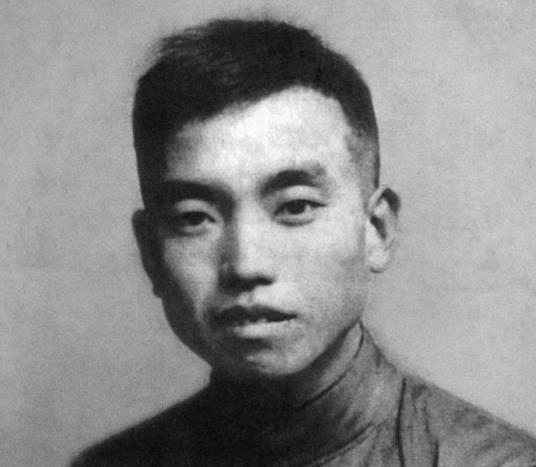The commander of the 6 divisions of the Eighth Route Army was the only one who was not the founding marshal, and in his later years he served as the vice chairman, and his son was a major general
In August 1937, the three main forces of the Red Army and the Northwest Red Army were reorganized into the Eighth Route Army of the National Revolutionary Army, of which there were six main and deputy division commanders, and five of them became marshals at the 1955 award ceremony.
Only General Shaw was awarded the rank of general, for what reason?

Xiao Ke, a native of Jiahe, Hunan, was born in 1907 in a poor scholarly school, and in his early years he studied at the Jiahe Jia and other teacher training institutes, although his family attached great importance to his education, but he was too poor to eat, and there were no conditions for him to continue to go to school, fortunately, the principal liked him and let him help the school to do some chores at night to get subsidies.
General Xiao was supposed to become a literati and inker, but in the turbulent years, he decided to join the army, and in 1926 he was admitted to the Whampoa Military Academy, and after graduation, he participated in the Northern Expedition.
But he soon saw the darkness within the Kuomintang, resolutely threw himself into the torrent of armed resistance, and joined the Chinese Communist Party in May 1927. After that, he participated in the Nanchang Uprising and the Shonan Uprising, and later successively served as the commander of the 3rd Column of the Red Fourth Army, the commander of the 12th Division, and the commander of the Independent 5th Division of the Red Army.
In October 1932, he became the commander of the Red 8th Army in the Xianggan Soviet District.
During the War of Resistance Against Japanese Aggression, he participated in the command of the east crossing of the Yellow River, the creation of the anti-Japanese base area in northwestern Jin, in 1939 he was appointed commander of the Eighth Route Army's Jirecha Advancing Army to participate in the command of guerrilla warfare, and then opened up the Pingbei base area and gradually developed to the west of Liaoning, creating conditions for the liberation of the northeast, and in 1943 he was appointed acting commander of the Jin-Cha-Ji Military Region.
During the Liberation War, he participated in the establishment of North China Military and Political University and served as vice president.
In 1949, he was appointed as the Fourth Field Army and the first chief of staff of the Central China Military Region, commanding the crossing of the Yangtze River, and successively conducting 6 large-scale battles to eliminate the remnants of the Kuomintang army on the mainland.
After the founding of the People's Republic of China, the general successively served as vice minister of national defense, vice minister of agriculture and reclamation, and president of the military academy, and became vice chairman of the Chinese People's Political Consultative Conference in 1980.
However, his 55-year evaluation of military ranks has been controversial, because during the War of Resistance Against Japanese Aggression, there were three deputy division commanders, of which the deputy commanders of the 115th Division and the deputy division commanders of the 129th Division were all marshals, and only General Xiao Ke, deputy commander of the 120th Division, was awarded the rank of general.
The first is subjective reasons. General Xiao Ke was once asked by Zhang to talk, he did not point out the mistake, it was considered not to take a stand, and he also voted for Marshal Chen during the Jinggangshan period.
The second is the objective reason. General Shaw is a marshal, but the number of places is limited and he is missing out. Marshal Xu was the first representative of the Red Fourth Front; Marshal Nie later served as the commander of the North China Field Army, and General Xiao Ke was the third deputy commander.
These are just some speculations, and everyone is welcome to correct them in the comments section.
However, General Shaw should not have cared too much about rank, he said:
"After participating in the revolution for so many years and how many comrades-in-arms have sacrificed, I can see that the founding of New China has been very lucky, and it is possible to evaluate no title or any title."
And he is not only a general, but also a literary scholar, if he was born in peacetime, he may not leave the literary world. He also read famous books on his march, took time to write many small stories during the Red Army period, and published a strange book "Blood Luoxiao" in 1988.
The general had three sons, the eldest son Xiao Bao was very popular, after the outbreak of the Anti-Japanese War was sent back to his hometown, died in the Japanese air raid at the age of 6; the second son died of bad material conditions not long after birth; the third son Xiao Xinghua graduated from Peking University, and later worked in the armed police force with the rank of major general.